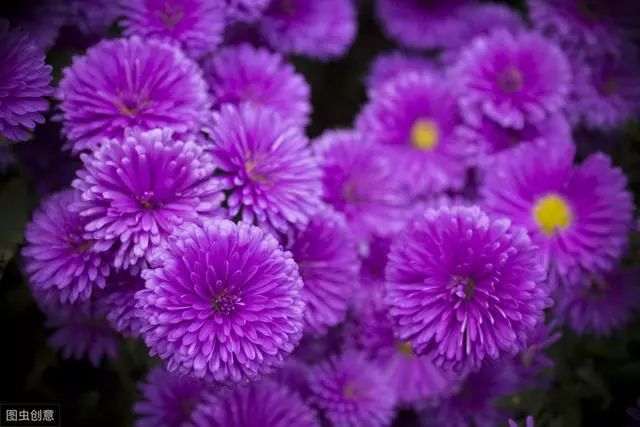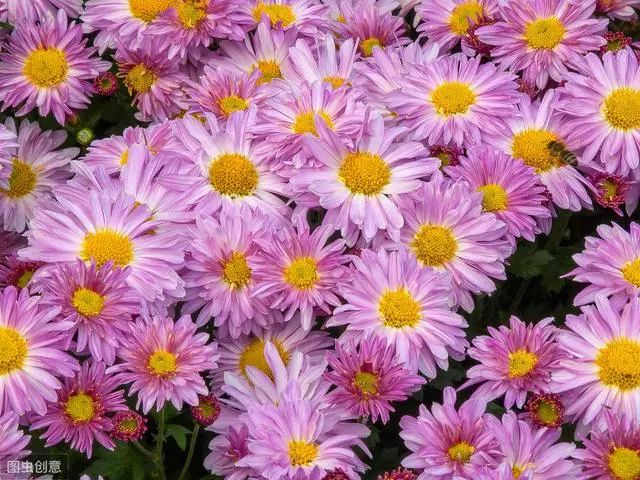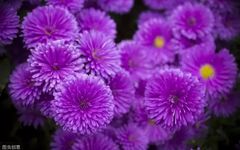The lungs govern the storage of Qi; all Qi within the organs and meridians is disseminated by the lungs. Qi is inherently clear and descending; when the heart fire turns right, it transforms into lung Qi. Once lung Qi is transformed, it has already nurtured the Yin spirit, thus its nature is clear, solemn, and descending. In cases of excess, it descends smoothly; in cases of deficiency, it ascends against the natural order. Descending leads to tranquility and calmness, while ascending leads to obstruction.
The sovereign fire (heart fire) and ministerial fire (gallbladder fire) have their roots in the water element (Gui Shui). Lung Qi collects and restrains it. When lung Qi ascends against the natural order, its restraining function is not exercised, and the sovereign fire (heart fire) and ministerial fire (gallbladder fire) do not descend but instead rise, leading to inflammation that can injure the lung metal, resulting in excess heat above. Symptoms such as chest tightness, belching, asthma, hemoptysis, and phlegm cough are all due to the failure of lung Qi to descend. The root cause of lung Qi not descending lies in the stomach; when stomach earth rises against the natural order, turbid Qi fills the space, obstructing the descent of lung Qi.

When lung and stomach do not descend, the sovereign fire (heart fire) and ministerial fire (gallbladder fire) do not settle but instead rise, leading to excess heat and cold below. In cases of Qi stagnation, if the disease is above, cooling is appropriate; if below, warming is needed. Cooling leads to metal gathering, while warming allows water to be stored. Clearing lung heat and descending stomach counterflow is the correct method, but one must not use cold and cooling agents to drain the root of Yang and damage stomach Qi. The reason for stomach counterflow is entirely due to dampness in the earth; when dampness obstructs the central Qi from circulating properly, Yangming cannot descend. Merely using clearing and moistening herbs to nourish the central dampness will further increase the cold below, causing lung and stomach to rise even more, exacerbating the heat above, leading to a prolonged illness.
Qi stagnation refers to the obstruction and stagnation of Qi in the organs and meridians. It can be caused by dietary evils or emotional distress; it can also arise from weakness and Qi deficiency. Different symptoms appear depending on which organ or meridian is affected. Qi stagnation in the spleen leads to reduced appetite, distension, and pain; Qi stagnation in the liver results in rebellious liver Qi, causing rib pain and irritability; Qi stagnation in the lungs leads to unclear lung Qi, with excessive phlegm and coughing. Qi stagnation in the meridians results in pain or movement disorders in the affected areas or symptoms related to that meridian.

Qi Stagnation in the Spleen
Manifestations: Spleen deficiency with damp-heat. Symptoms include abdominal distension, dry mouth, reduced appetite, nausea, vomiting, fatigue, or diarrhea, with a thin, pale yellow, greasy tongue coating and a weak, slow, or rapid pulse.
Treatment principle: Strengthen the spleen and stomach, nourish Qi, eliminate damp-heat, open the chest and diaphragm, and relieve distension. Main formula: Da Jian Pi Tang (Major Spleen Strengthening Decoction).
Qi Stagnation in the Lungs
Manifestations: Chest tightness and distension, shortness of breath, fullness below the heart, lack of appetite, and a wiry pulse. Clinically, it is often used to treat bronchial asthma, bronchitis, and gastritis associated with rebellious liver Qi.
Treatment principle: Move Qi and descend counterflow, open the chest and disperse clumping. Main formula: Si Mo Tang (Four Milled Decoction) with modifications.
Qi Stagnation in the Liver
Manifestations: Pain in the flanks, headaches, dizziness, dry mouth and throat, fatigue, reduced appetite, irregular menstruation, breast distension and pain, with a wiry and weak pulse.
Treatment principle: Soothe the liver and relieve depression, nourish blood and strengthen the spleen. Main formula: Xiao Yao San (Free and Easy Wanderer Powder) with modifications.
Five Organs Health Preservation
Seasonal Health Preservation for the Five Organs
In summer, heart Qi is at its peak, governing the body. The Huang Di Nei Jing states, “The heart governs the spirit.” When heart Qi is abundant, the spirit is clear and energetic; individuals born in this season tend to be extroverted, lively, and sociable. However, if heart fire is excessive, it can lead to skin sores and other diseases; overuse can lead to heart Qi depletion, resulting in heart disease.
In spring, liver Qi is at its peak, dominating the entire body. Individuals born in this season, due to the smooth flow of liver Qi, often have a peaceful and rational temperament. If the liver is not well cared for during this time, or if it is overworked in other seasons, it can lead to excessive liver Qi repression, resulting in liver Qi stagnation, which can further impair spleen and stomach function or cause emotional distress.
During the long summer season, the spleen Qi is predominant, particularly around the sixth lunar month. The spleen governs the transformation of food and water and controls the muscles and limbs. If the spleen is overworked, symptoms such as poor appetite, abdominal distension, and diarrhea can easily occur, while fatigue and weakness are often caused by spleen Qi being obstructed by damp-heat.
In autumn, the lungs are predominant. During this season, the lungs are most susceptible to external pathogens. The lungs govern the respiratory Qi, and respiratory diseases such as colds, bronchial asthma, and chronic bronchitis often increase significantly, requiring special attention and care.
In the winter months, the body is influenced by kidney function. The kidneys represent the essence of life, governing reproduction and development. If one does not pay attention to “lightening the load” on the five organs during this time, allowing them to “hibernate” with nature, it can easily lead to stagnation of Yang Qi, causing Qi and blood obstruction, resulting in cold hands and feet, limb pain, and even cardiovascular diseases.
Eight External Application Methods for Health Preservation of the Five Organs and Six Bowels
Heart System External Application Method
The heart is the “sovereign” of the body, the ruler of health, so we must treat it well.
The Shen Men point is the source point of the hand Shaoyin heart meridian, located on the inner wrist, on the side of the little finger at the wrist crease. It is the gateway for the Qi of the heart meridian, used to tonify the heart, with the best effects.
Ren Shen (Ginseng) is the best herb for tonifying the body’s original Qi; it not only tonifies the spleen but also benefits all organs and meridians. The heart’s beating relies on original Qi for maintenance, so both theoretically and practically, it is recommended to frequently use ginseng to apply to the Shen Men point to tonify the heart.
Kidney System External Application Method
The kidneys are our “pre-natal foundation”; the innate essence contained within them is the root of all organs’ survival, playing an irreplaceable role in our growth, development, and metabolic balance.
To tonify the kidney system, there is no method more effective than using the Tai Xi point with Bai Ren Shen (White Ginseng).
The Tai Xi point is the source point of the foot Shaoyin kidney meridian, where the original Qi of the kidneys converges, having the effects of nourishing kidney Yin, tonifying kidney Qi, and strengthening kidney Yang, making it a key point for kidney health preservation.
Ginseng can tonify all organs and meridians, naturally benefiting the kidneys as well. Compared to other kidney tonics, it has no unpleasant odor and is very clean and refreshing. In ancient terms, “Yuan” actually means “root.” A large tree must rely on its roots for nourishment to have a trunk, branches, and leaves. The source points of the meridians are like the roots of a large tree, governing the storage and release of Qi in each meridian, injecting original energy into each meridian.
The source points directly correspond to the organs. Therefore, applying tonifying herbs at each meridian’s source point allows the medicinal properties to immediately enter the corresponding organ.
Ginseng is primarily produced in the northeastern provinces known for their black soil. From the perspective of the Yijing, it best receives the innate energy of the Kun earth, making it an excellent herb for tonifying the spleen. Thus, I recommend applying slices of Bai Ren Shen to both sides of the Tai Bai point as a method for tonifying the spleen system. Ginseng has already been introduced in the first section of this chapter, so I will not elaborate further.
Stomach System External Application Method
“Food is the heaven for the people”; as the “post-natal foundation” of the body, the stomach directly relates to our quality of life, so we must pay special attention to its care.
The Chong Yang point paired with Dang Shen (Codonopsis) is an excellent method for maintaining the stomach system.
The Chong Yang point is the source point of the foot Yangming stomach meridian, which is easy to locate. Press on the highest point of the foot’s dorsum, and where you feel a pulse under your fingers is the Chong Yang point.
Dang Shen is a commonly used tonifying herb in traditional Chinese medicine. According to the Ben Cao Zheng Yi, it can “tonify the spleen, nourish the stomach, moisten the lungs, generate fluids, and promote the movement of central Qi… Its most valuable aspect is that it tonifies the spleen without causing dryness, nourishes the stomach Yin without causing dampness, moistens the lungs without being cold, and nourishes the blood without being overly rich.” Moreover, it is primarily produced in the northwest region, where the Dang Shen grown there has more innate energy than that from other areas, making its stomach tonifying effects stronger.
Using Dang Shen to apply to the Chong Yang point to nourish our stomach is a delightful application of the principle of “seeking the same Qi”; the benefits are truly hard to express.

